Last updated on April 5th, 2025
A boiler losing pressure regularly means you have a problem with the boiler or the central heating system. The most common reason is a leak, which could be anywhere on the system. I have been a full-time heating engineer for over a decade, and a boiler losing pressure is normally easy to fix.
Causes for pressure dropping
Bleeding radiators will cause your boiler pressure to drop, but if it keeps dropping, there is something else causing it.
Most likely causes:
- A Leak
- Expansion vessel has lost its air
- Pressure relief valve passing water
- Filling loop letting by
A leak
The most common problem I get called out to on a boiler that keeps losing pressure is a leak. This could be anywhere; a radiator, a radiator pipe under the floor, the boiler, literally anywhere on the heating system.
The most common place for a heating system leak is on a radiator valve. Check them all for any signs of water. You can often fix a leaking radiator valve by tightening a nut on the valve. There are usually three nuts on a radiator valve that can leak and be fixed by tightening the nut.
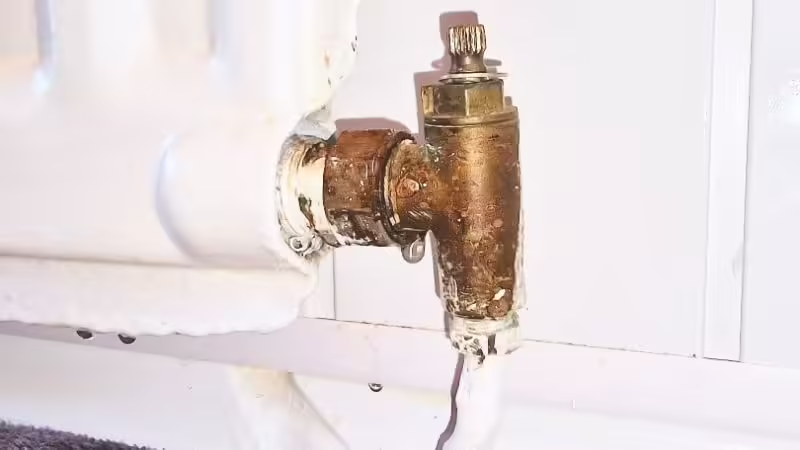
If the leak is not on a radiator, check under the boiler and any other heating pipes on show around the house. If you can’t find the leak, it could be under the floor. This means the floor will have to come up, or, you can try adding some leak sealer to the system if it’s a small leak.
Expansion vessel
A pressurised central heating system needs an expansion vessel to take the expansion of the hot water when the heating is turned on. If your pressure is dropping with no leaks, a faulty expansion vessel is the most likely cause. These are either inside the boiler or could be in the hot water cylinder cupboard if you have one.
The expansion vessel should be full of air, so when the heating is on it takes some of the pressure increase away from the radiators and pipes. If it loses air (quite common), your boiler pressure will rise too high when you turn the heating on, causing it to reach over 3 bar. This will cause the pressure relief valve safety device to release all the water (pressure) outside and take your pressure gauge to 0.
To fix this problem, you need to recharge your expansion vessel by pumping it up with a pump. If that doesn’t work and the diaphragm inside the vessel is split, you will have to replace the expansion vessel.
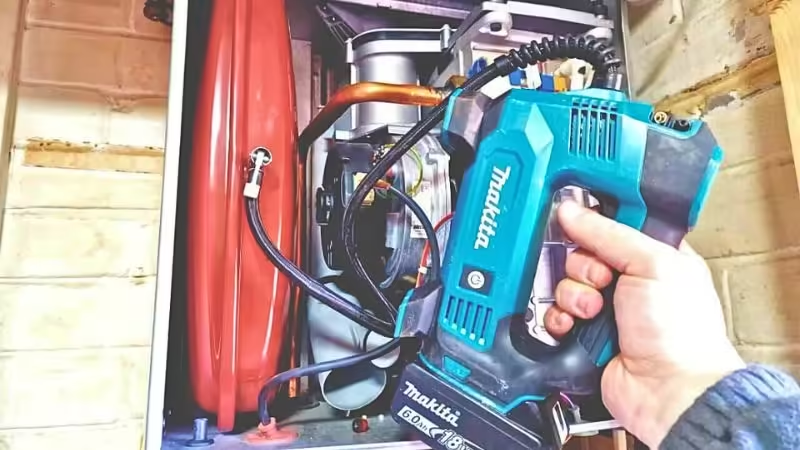
Pressure relief valve passing
All pressurised heating systems must have a safety device called a pressure relief valve (PRV). A PRV protects your system from building up too much pressure and causing a radiator or boiler to blow up. PRVs can leak because they get little bits of debris or dirt stuck in them when they open to release the high pressure.
Slow Pressure Drop? If your boiler pressure keeps dropping slowly and it’s not rising to 3 bar first, you should check your copper blow-off (overflow) pipe outside for dripping water. If it’s dripping, you will need to replace the pressure relief valve. Make sure the pressure is not rising before replacing it because the new PRV will leak if something is causing the pressure to rise.
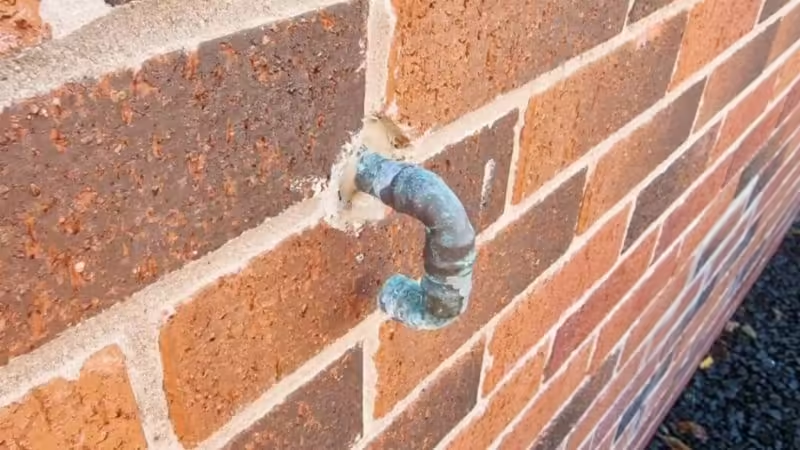
Filling loop letting by
Another reason for losing pressure could be your filling loop being slightly open or broken. This will cause the pressure to rise to 3 bar and the PRV to blow the system water outside. Sometimes the valves on the filling loop are not closed properly after topping the pressure up, and sometimes the valve just doesn’t close fully anymore because of dirt or damage and the filling loop valve needs to be replaced.
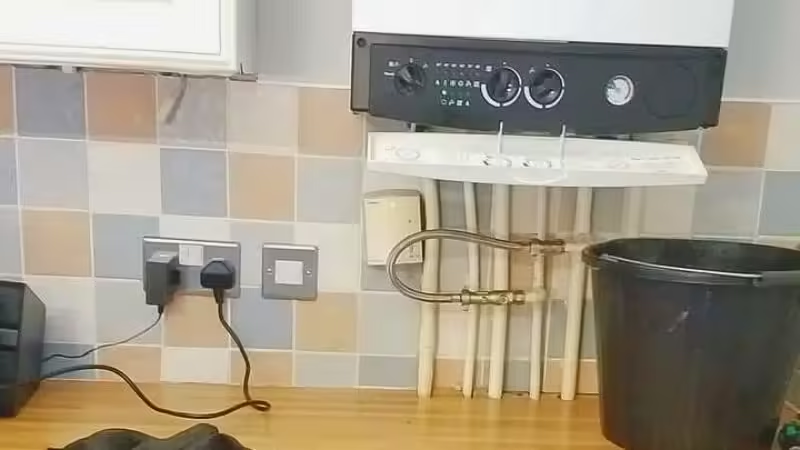
Pressure rising first
If your boiler pressure is rising to 3 bar this is most often caused by your expansion vessel not doing its job. It could also be caused by the filling loop constantly letting water into the heating system, but this is less common. When your pressure rises to 3 bar the PRV will let the water and pressure out of your heating system. The PRV sometimes will not close fully after being used, so after fixing the pressure rising problem, you might have to replace the PRV also.
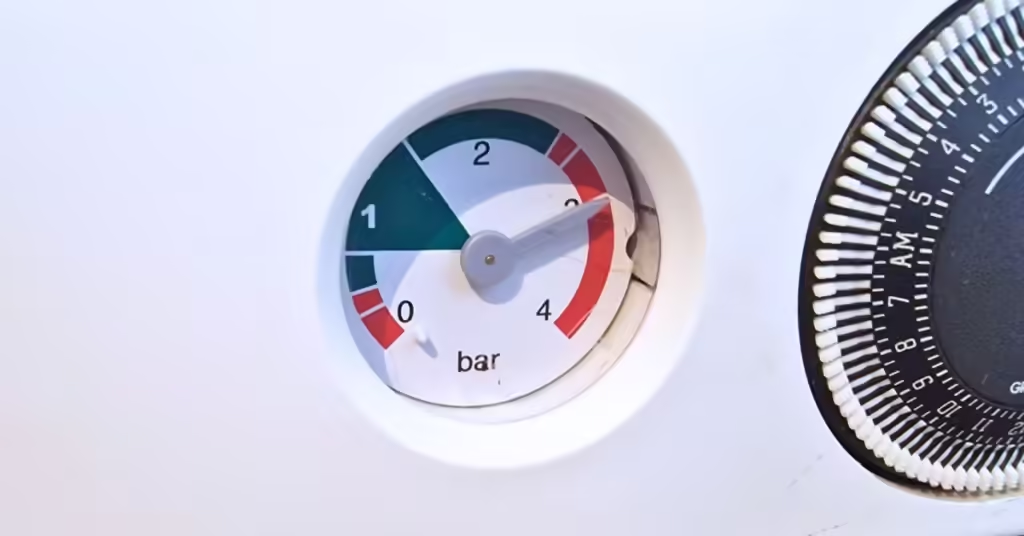
Conclusion
If your boiler loses pressure constantly, finding out the cause is the first step to fixing it. If there is no sign of water coming out of the copper pipe outside, it is most likely a leak. If the pressure is rising to 3 bar when the heating is turned on, it’s the expansion vessel.
Have any questions? Drop them in the comments below, I’ll do my best to help! If you found this post helpful, don’t forget to share it with others who might benefit.
FAQs
Can a dripping tap cause boiler pressure to drop?
No, a dripping tap can not cause boiler pressure to drop. A tap is not connected to your central heating system, so a kitchen or bathroom tap dripping cannot affect your boiler pressure.
How often should a boiler lose pressure?
A boiler should never lose pressure unless there is a problem. If your central heating is losing pressure, you might have a leak on the heating system. If it loses pressure once or twice a year, I wouldn’t worry about it.
Is low boiler pressure dangerous?
No, low boiler pressure is not dangerous. If your boiler pressure is too low the boiler will not work, but it will not make it dangerous. You should repressurise the boiler if you have low pressure to stop it from breaking down.
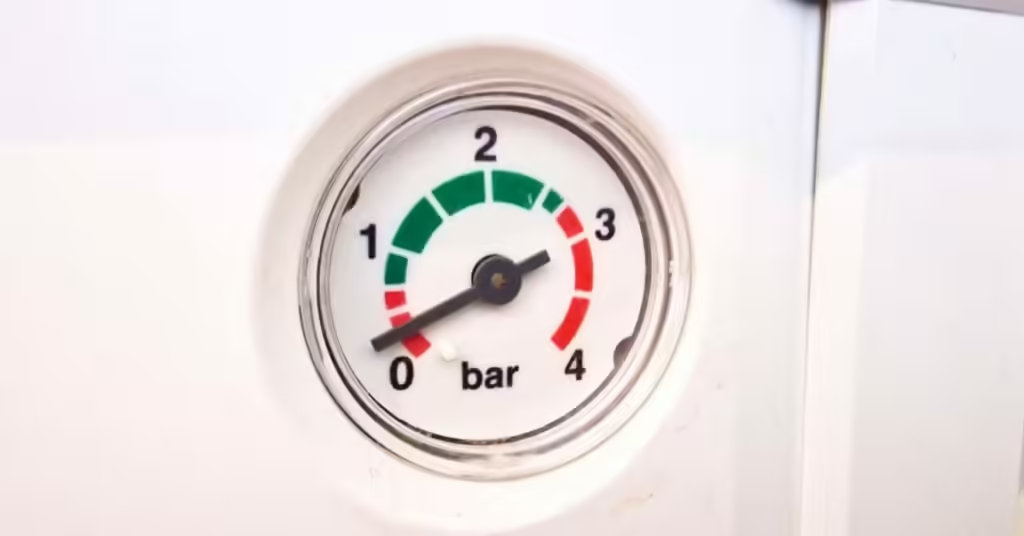

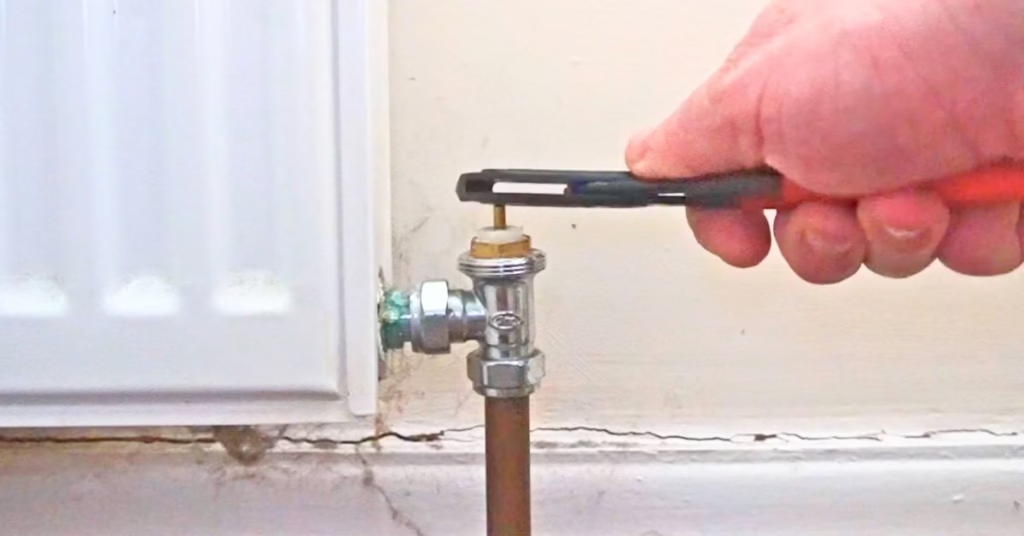
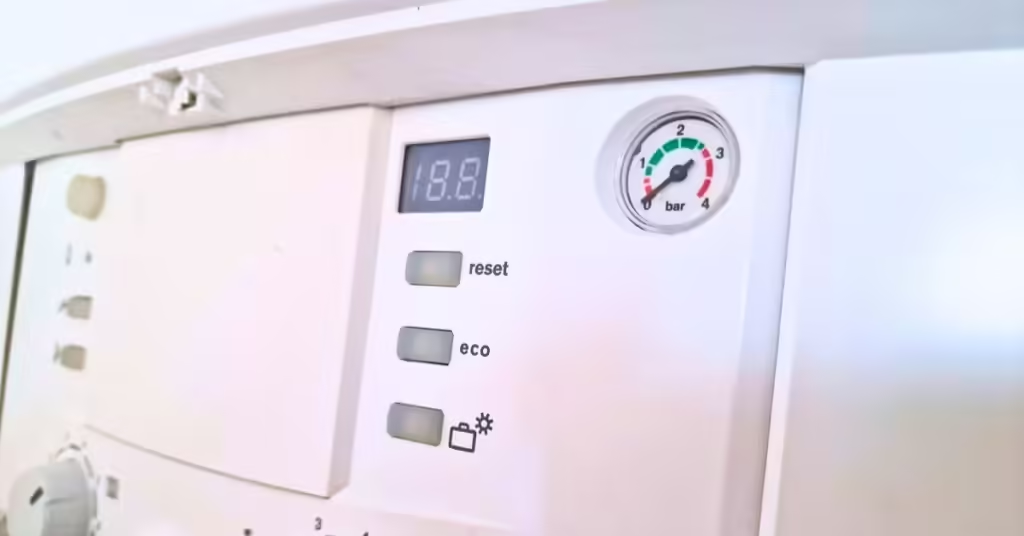
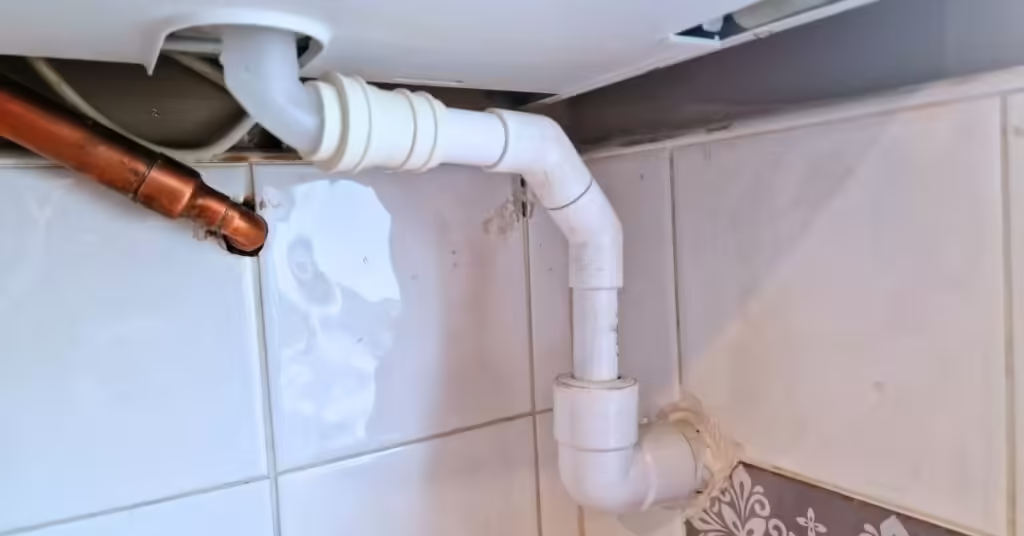
Hi I have a new combo boiler fitted, all was ok until we bled the radiators due to the towel rail in the bathroom having a cold spot. The next day we had no pressure in the boiler so we topped it up and all was ok until two days later we woke up to no pressure. We have topped it up again and checked the radiators, we can’t see any leaking from the valves? Can the valves be leaking without water leaking from them??
Hi Karen,
No, the valves won’t be leaking if there’s no water. If you’ve just had a new boiler fitted then it could just be air in the system working its way out of awkward places depending on the size and layout of your heating system. See what it’s like over the next few weeks but it could be a leak on a pipe under the floor somewhere.
My boiler losses pressure if it’s not been used very much
Great article but I’m still at a loss, can’t find a leak anywhere & my boiler loses pressure every couple of days! Any advice mate?
Hi Steven,
The first thing I’d do is find out whether the leak is on the boiler or the heating system.
To do this, top the pressure up to 2 bar and then close the flow and return valves on the boiler, leave it overnight and see if the pressure has dropped the next day.
If the pressure has dropped then the problem is on the boiler, if it doesn’t drop then it’ll be a leak on the heating system.
It means you won’t have use of the boiler for the night but it’ll narrow down where the problem is.
Hello, I have the same problem with the pressure drop in the boiler, I can’t locate the leak anywhere, apart from that, I close the supply and return valves at night, when I get up, I check the pressure on the boiler and it has dropped by about 0.5 bar, does it mean that the problem is somewhere inside the boiler? with expansion vessel,heater plate or pressure relief valve? The problem with dropping pressure straty when I start to use heating, before everything was ok.Thank you for any help Lukasz
Hi Lukask,
Yes, the problem will be on the boiler if the pressure keeps dropping after you isolate the boiler. Check how much the pressure rises when the heating is turned on and check the copper pressure relief valve blow-off pipe outside for dripping water.
Good morning Steven, First Thank you for replay and support 🙂 when I check. it increased by about 0.3 bar, when the boiler stopped heating it fell again, it seems to me that the pipe is plastic and connected to the sewage system in the bathroom so I can’t see anything, maybe it’s blocked somewhere?
The plastic pipe is the condensate pipe, there should be a copper blow-off pipe also. 0.3 bar pressure rise is normal so it won’t be an expansion vessel problem.
Hi Steve, Can you tell me where I can find copper blow of pipe? Is out side or inside house?
It should be coming from the bottom of the boiler and going outside to discharge the water.
Hi Steven,
I had my boiler checked today under warranty and have been told that expansion vessel is fine. Pressure relief valve swapped for brand new and loop works fine (one way no leaks)
Pressure set for 1,5Bar and heating on for 6h after which pressure at 1,9Bar.
Heating turned off for the night, wake up to pressure 0,3B without signs of any leak etc.
Boiler engineer told me it must be a leak and that there is nothing wrong with the boiler but my simple thinking makes me ask the question shouldn’t boiler be loosing pressure even quicker while it’s on if there was a leak? Higher pressure should push the water through the leak quicker right? Or I’m missing something here?
If I could afford it these days and keep the heating on all the time it seems like it’s fine but once you turn it off that’s when it drops ♀️
Thanks!
Piotr
Hi Piotr,
Yes, higher pressure will make it leak quicker but it also depends on the size of the leak hole how quick it leaks. It does sound like a leak.
I would recommend topping the pressure up to 2 bar and then closing the flow and return valves on the boiler, leave it overnight and see if the pressure has dropped in the morning.
If the pressure has dropped then the problem is on the boiler, if it doesn’t then it’ll be a leak on the heating system.
Thanks for your response.
It is a puzzle that is driving me crazy as I can’t identify the problem and therefore get is sorted. I have looked at the pipework that is fairly easy to access but there is some that it will be difficult to access, and some that will be very very difficult (expensive) to access. For info, it loses about 0.5 bar over 7-14 days
I would probably add a bottle of leak sealer to the system in that situation. Sounds like you’ve got a small leak on the pipework under the floor that’s not accessible.
Leak sealer won’t harm the boiler. It might not work but it’s worth a try.
HI,
I have been losing pressure fom the heating system for some time, albeit quite slowly. Unable to find anything the boiler (it was getting old) and all the rad valves were replaced, however it is still losing pressure and my heating engineer is at a lost of what it may be. He has now suggested that as the whole system has just been refilled there will be air in the system that will take some time to settle down – is this likely. Also he is very reluctant to use a sealant as the boiler is new.
Hi David,
It doesn’t sound likely because if there are any pressure loss problems after refilling the system the boiler losing pressure will usually only happen once or twice.
If your boiler pressure keeps dropping it could be a leak on the pipework under the floor downstairs (assuming it’s not on any radiator valves or boiler parts) which would be impossible to know unless you pull the floor up.
I understand him being reluctant to use a leak sealant as so am I.
Another possibility is a pinhole leak on the plate heat exchanger if it’s a combi boiler but that’s unlikely on a new boiler.
Hi Steven, I have a problem with my combi boiler, it is just over a year old, when we go away, we lower the thermostat, so heating will only kick in if it drops below 10degrees, however, when we come back, the pressure has always dropped and so the heating has not come on, as soon as I refill the boiler it works fine again, untill I lower the thermostat again, any ideas please? Thanks.
Hi Tina,
Sounds like a leak. The boiler losing pressure will have nothing to do with the thermostat temperature. Check all the radiator valves and under the boiler for any signs of water leaking. A leak could be anywhere on the heating system though.
Excellent article Steven. Thank you so much.
Thanks George, much appreciated!
Hi Steven,
Couldn’t see another way of contacting. I have got a pressurised system and yesterday I bled a couple of rads as they had air in. Didn’t fill up the system. Late that afternoon found the pressure had dropped to 0. I filled the system with the loop and no problems. By this morning the system had dropped to zero again. Refilled again but subsequently have noticed the pressure has gone above 3 at various times today. Can’t see any water coming out of expansion pipes. When I turn off heating, the pressure drops fairly quickly again. Can see no leaks. Any suggestions??
Nick
Hi Nick,
The pressure shouldn’t be above 3 bar so something is causing it. It’ll be either the expansion vessel needs to be recharged (or replaced) or you might have left the filling loop slightly open.
Hi I have mistakenly slightly turned the pressure valve to left letting water out now its dripping, the gauge black and red hand was at bar 1 now red has stayed and black is dropping down to 0.
Any advise would be most grateful.
Hi Danielle, I’m not sure what you mean.
Have you opened the pressure relief valve to try to reduce the pressure?